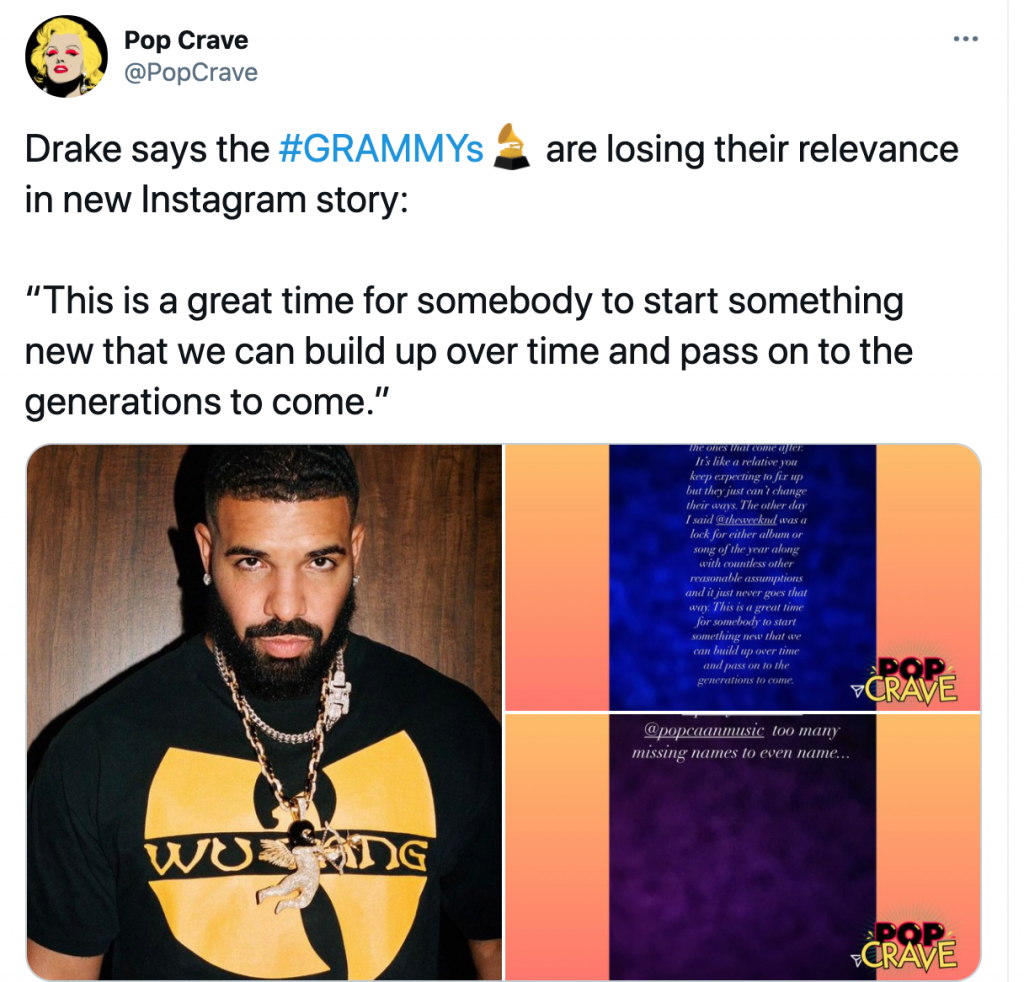By: Subaita Rahman
When the Grammys announced their 2020 nominations earlier this week, the response was … mixed.
With the list missing top artists but including other questionable songs and categories, (and surprisingly acknowledging Justin Bieber’s “Yummy”, which is reason enough for concern), the Grammys are drawing questions of their judgment and even their relevance. As one of the biggest facets of pop culture, music award shows like the Grammys are a powerful force for recognition and star power. How music awards pay off is a much-needed look into who decides the value of music, and how this affects artists and the industry.
A question you might be asking: Okay, so do Grammy winners get money?
Though winning a Grammy doesn’t come with a cash prize, performers and producers can see a boost in their concert ticket sales and producer fees by at least 55% in the “Grammy Bounce” that comes after a win. According to Forbes, non-Grammy producers on average charge $30,000 to $50,000 per track, whereas the starting figure for Grammy-winning producers is in the $75,000 area.
Similarly, after a night of widespread attention, visibility pays off for many stars, both figuratively and literally. Artists like Bruno Mars and Taylor Swift saw their average nightly gross jump spectacularly after winning their first Grammy, with Swift seeing a 380% increase from $125,000 to $600,000. This lasted well after her win in 2010; her nightly gross earnings jumped again in 2011 to $1.1 million.
If that wasn’t enough, as a fun fact, the gift bags given to its guests can reach values higher than many people’s yearly income, with bundles including private island vacations, designer leather bags, Gibson guitars, and Tiffany cat collars, adding up to $50,000 certain years.
With this in mind, it’s clear that though the award itself does not come with money, having a Grammy in your arsenal gives a boost of money and power of how strong your influence is in the music industry. Also, how much drip your cat has, apparently.
So who chooses the winners?
The voting process is said to include solely music creators in a rigorous process of two rounds. However, it’s clear that at times their view differs from the public, with chart-topping artists like Katy Perry, Nicki Minaj, Nas, and Tupac never taking home a Grammy of their own.
Many in particular are seeing the absence of The Weeknd as a sign that the Grammys have a questionable process. For context, his album After Hours had the biggest streaming week for an R&B album, and his single “Blinding Lights” has the highest number of weeks any song has ever had in the Billboard Hot 100’s Top Five (and I’m sure you must have heard it).
What might be going through your head right now is, why does this matter?
Fair enough. It’s a pop-culture award show that makes rich people richer, and some people whine a bit over it. The Recording Academy chair and interim CEO Harvey Mason Jr. responded to claims of corruption and nominations being “a total disaster” by saying, “As the only peer-voted music award, we will continue to recognize and celebrate excellence in music while shining a light on the many amazing artists that make up our global community.”
But, do they?
For starters, Western awards shows have been largely unkind to hugely popular international artists, giving them nominations many seem to be insultingly low or putting them in a category to avoid mixing them in with Western artists (that they could probably wash). From there, we see concerns of possible xenophobia and racism.
Additionally, considering how nearly all of us have listened to the radio, and as much as we try to be indie and lowkey about it, a lot of money goes into music production, and many artists would agree that they would be better off and could explore more of their art and talent with more money and exposure. This is a straightforward explanation in which the Grammys can very clearly affect someone’s career and ultimately the media we consume. Is this also perhaps a larger analogy to the perils of democracy, to elitism, or even the tyranny of the majority? Who knows – it is likely that The Weeknd’s snub is truly sending Socrates and Rousseau spinning in their graves.
Whatever it is, the Grammys are one of many instances where award shows are misaligned from public opinion and even true art value. It’s truly a grim day where I disregard classical political theorists to quote Drake, but here we are.

Source: https://twitter.com/PopCrave/status/1331751361650839552/photo/2
However you choose to slice it, music award shows have a lot of power in our media and representation, and its growing accusations of corruption may be a sign that, as Drake says, the Grammys are in need of replacing. Hopefully, this will lead to further discussion on representation, power dynamics, and rightful appreciation of art. And, potentially one of those gift bags sent my way while we’re at it.
No responses yet